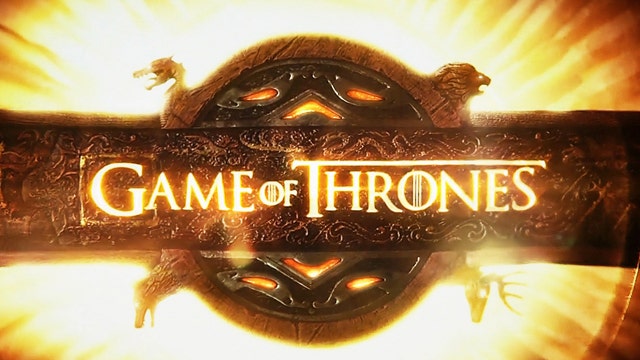[Spoiler warning: Do not read on unless you’ve seen “Game of Thrones” Season 6, Episode 2, titled “Home.”]
Ser Davos Seaworth has always been a kind of audience surrogate on “Game of Thrones,” and tonight, he spoke for many fans of the HBO drama. He stepped into the room of the depressed Melisandre and asked the question that has obsessed a large chunk of the internet for about a year: Is Jon Snow really dead, and if so, does he have to stay that way?
In the final frame of the second episode of the season, Jon, who bled out in the last moments of the Season 5 finale, came back to life.
Presumably he’s not a White Walker, given that his eyes remained their usual brown. But will he be the same Jon Snow we knew in the past? We do know he’s been shorn of his lovely locks, but will he be the same person viewers knew in the past? We have to wait a week to see.
As Melisandre indicated, bringing someone back from the dead isn’t necessarily easy or advisable. Khal Drogo was kept alive via some very dark magic, and that didn’t end up being a good thing for him or his Khaleesi. Beric Dondarrion was brought back as well — by a fellow follower of the Lord of Light — but Melisandre noted that it shouldn’t have been possible, and when Melisandre thinks a form of magic is a little too hinky, it’s worth listening to her. And in “Home,” ultimately she didn’t think her ritual worked, everybody left, and poor Ghost was left to face the fact that his master was back — in some form.
But is that a good thing? Much of tonight’s episode focused on shifts in power — the taking of power, the depriving of access to power. A number of these changes and confrontation were generational in nature. If Jon Snow returns to his post as Lord Commander of the Night’s Watch, leading a new alliance of composed of Wildlings, Ser Davos, Melisandre, Dolorous Edd and few other loyalists, that might turn out to be a welcome development. After all, much of the current season is about new alliances and unlikely groups of people coming up with ways to work together. Jon’s sister Sansa has her own little band of followers in the frozen North, over in Meereen a strange bunch of folks have been thrown together and are trying to make it work. Tyrion’s even making friends with dragons! What next, Hot Pie becomes best friends with the king of the White Walkers? Anything can happen on “Game of Thrones” these days.
In all seriousness, these new groupings are often fascinating to watch. The new season of “Game of Thrones” is still setting all of its game pieces on the board, and tonight’s episode was the usual around-the-horn update on at least eight different groups in a wide variety of locations, but the threads uniting many of these storylines involving shifting allegiances and the practical new plans that emerge from these ad hoc alliances. There were murderous plans afoot in some of these realms, which is not a major shock in this unstable world.
As heartening as it may be to see the unlikely groups in the North figuring out ways to survive, all of those promising developments must be viewed next to the awful developments at Winterfell. It was hard not to feel a bit sick when it was announced that Lord Bolton had a new son, not when Ramsay Bolton is feeling distinctly insecure, thanks the disappearance of his wife, Sansa Stark. Lord Bolton compared his son to a mad dog, which was perhaps not the wisest course of action, especially since Bolton raised his son to be one of the maddest and most violent young dogs in this very violent land.
In relatively short order, Roose Bolton died, followed by his wife and newborn son. That sick, sinking feeling many viewers likely had when Ramsay led the woman and baby into the dog kennel came from knowing that “Game of Thrones” would absolutely kill a newborn child and his terrified mother. Somehow not seeing their deaths did not necessarily mean they were easier to bear, given that the sick look on Ramsay’s face made the scene truly stomach-churning. He killed because he had to, but also because he wanted to. That kind of power grab is repugnant, and it’s hard to think his new alliance with the grudge-holding Karstarks will end up working out well. But this is Westeros, so it might.
Also dying in this episode: Balon Greyjoy, whose brother Euron (Pilou Asbæk) had little time for family reminiscences. Like Ramsay, he simply took a life because he felt he could and he must, but there will be consequences for that. If nothing else, he should not expect a warm welcome from Yara Greyjoy.
There is one relationship in Westeros that will truly never die, and that’s the connection between Cersei and wine. She has the comfort supplied by her endless bottle, but it’s not that much help these days.
She has trimmed her sails a bit and is no longer the imperious queen she was in the past: She backs down when she’s told she can’t leave the Red Keep, even though she has a murderous and apparently loyal killer knight at her side. As “Game of Thrones” heads into its later seasons, we’re seeing clear differences in how people conduct themselves: The Cersei of old would have had anyone who told her what to do killed; a survival-oriented Arya would have done whatever she needed to do to get a meal and a roof over her head; Sansa ruefully recalled refusing an alliance with Brienne in the past; and Jaime would have likely felt sure he could get away with killing a defenseless old septon.
Hard circumstances have taught all these people that their old ways of moving through the world probably won’t serve them well these days. People who didn’t have to compromise in the past have to do so now. Extremists like the High Sparrow come along now and then, but they’ve got to back their positions with force, and as we’ve seen, even a loyal army is not necessarily a lasting defense against multiple enemies or a canny foe. Many of the characters who’ve lasted this long have done so because they outsmarted their rivals — and weren’t afraid to take lives when they had to. Few, aside from Ramsay, take any real pleasure in it.
It’s hard to draw any conclusions about “Game of Thrones” when it comes to the power of life and death; some who heedlessly take many lives prosper, while those who are caring and try to avoid bloodshed, well, they tend to die. A lot. It’s a harsh world, but it’s also one in which those who believe themselves worthy of taking lives on a whim tend to pay steep prices for doing so — eventually. Those who are left in this world are having to figure out how they want to live and rule — and the old ways (and the old gods) aren’t necessarily what they serve now. There have to be rationales for taking lives, and giving them, or else the chaos they’re living through will simply keep grinding on forever, and none of these weary folks want that.
What of those who give life back? Is that their right? Will the gods have something to say about that?
Is it necessarily a good thing that Cersei is guarded by a man who, from all appearances, should be dead? Should we be glad that Jon Snow is back? Will he be the same well-intentioned man who was stabbed to death by his former “brothers”? Will a new cycle of life, bloodshed and death begin again for him? Will Melisandre be restored to her faith in the Lord of Light, and if so, will she seek to acquire power again — and use Jon Snow in that quest? If nothing else, Jon may end up wishing he hadn’t been brought back, given how hard it is to know who or what to serve in this series of broken kingdoms.
In the long run, will Ser Davos be sorry he ever asked for the dead Lord Commander to be brought back? Characters on “Game of Thrones” often have cause to regret their rash actions, and it’s hard to imagine this one won’t have a few unexpected consequences.
A few final notes:
- Hodor! Hello to Bran, who was approximately half the size he is now when we last saw him in season four. In an episode in which there were many shocking transitions, another couple of changes were alluded to in this scene: Bran is now a well-traveled Warg who can also, with guidance, travel (within his mind anyway) through time. So he is essentially guest starring in a “Doctor Who” spinoff? In any event, whatever turned Hodor from Willis into a man who can only say one word — it probably wasn’t good.
- A very interesting situation will be brewing in the Iron Islands if Theon does indeed return home. It’s a good bet that he, his sister Yara and their uncle Euron will all vie for power. Even if alliances are struck in that harsh land, they should all avoid rope bridges for the foreseeable future.
- “Game of Thrones” is truly approaching “Lost” status in the sheer number of Bad Dads on display. Very few Father of the Year awards are going to be handed out in Westerns any time soon, though at least Jaime and Tommen had a relatively nice moment together (as did Tommen and his mother).
- Speaking of change, even the dragons have evolved a lot, at least the two in the basement in Meereen. This is pure speculation, but if, in future, an army on the march was commanded by Tyrion on the back of a dragon, that would certainly be a sight to see.
- Arya’s “Karate Kid” training continues to go not all that well, but at least she knew not to name herself. Wax on, wax off, a girl has no name.















































